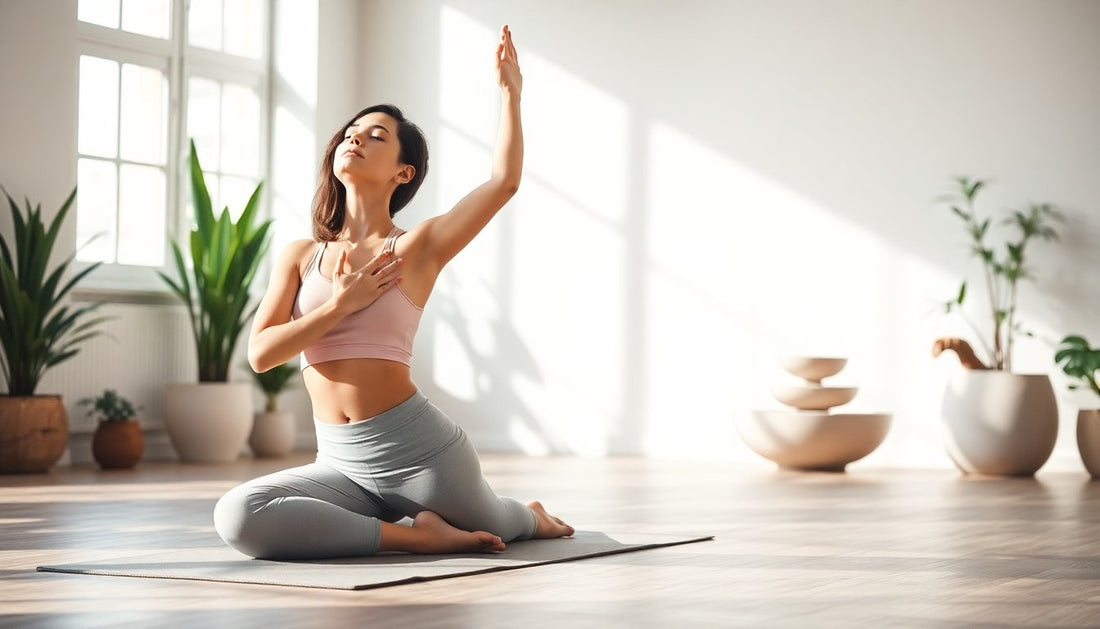Pilates is often associated with physical fitness, but its benefits extend far beyond just the body. This low-impact, mind-body exercise has been proven to be an effective tool in reducing stress and anxiety, and improving overall emotional well-being.
The Connection Between Pilates and Mental Health
At its core, Pilates is all about mindfulness and control. The practice requires you to focus intently on your breath, your posture, and the precise movements of your body. This intense focus on the present moment can have a calming effect on the mind, helping to quiet the constant chatter of anxious thoughts.
"When you're doing Pilates, you're really tuning in to your body and your breath," says Jane Doe, a certified Pilates instructor. "It's a chance to step away from the stresses of everyday life and just be present in the moment. That can be incredibly soothing for the mind."
In addition to the mindfulness aspect, Pilates also incorporates elements of strength training and flexibility. This combination of physical and mental engagement can have a powerful effect on stress and anxiety levels.
"The physical aspect of Pilates helps to release tension and built-up energy in the body," explains Doe. "And the mental focus required helps to calm the mind and reduce feelings of worry or overwhelm."
Reducing Stress and Anxiety with Pilates
One of the primary ways that Pilates can improve mental health is by reducing stress and anxiety. The practice has been shown to lower levels of the stress hormone cortisol, which can have a negative impact on both physical and mental well-being.
"When we're under a lot of stress, our bodies go into a state of high alert," says Doe. "Pilates can help to counteract that by activating the parasympathetic nervous system, which is responsible for rest and digestion. This can help to lower heart rate, blood pressure, and feelings of anxiety."
In addition to reducing stress, Pilates can also help to improve overall emotional well-being. The practice has been linked to increased feelings of calm, improved mood, and enhanced self-awareness.
"Pilates is all about tuning in to your body and your breath," explains Doe. "When you're able to do that, it can have a really profound effect on your mental state. You start to feel more grounded, more centered, and more in control of your emotions."
Incorporating Pilates into Your Routine
If you're looking to incorporate Pilates into your routine to help manage stress and anxiety, there are a few things to keep in mind. First and foremost, it's important to find a qualified instructor who can guide you through the practice and ensure that you're doing the exercises correctly.
"Pilates is a very precise practice, and it's important to have someone who can teach you the proper form and technique," says Doe. "That way, you can get the full benefits of the practice without risking injury."
It's also important to be patient and consistent with your Pilates practice. Like any form of exercise or meditation, it can take time to see the full benefits. But with regular practice, you'll start to notice a difference in your stress and anxiety levels.
"Pilates is a lifelong practice," says Doe. "It's not something that you can just do once and expect to see results. But if you stick with it, you'll start to see a real difference in your mental and emotional well-being."
So if you're looking for a way to reduce stress and anxiety and improve your overall mental health, consider giving Pilates a try. With its focus on mindfulness, strength, and flexibility, it just might be the perfect antidote to the stresses of modern life.

